NI abortion law 'should be reformed by Westminster'
- Published
The law on abortion in Northern Ireland explained
Two-thirds of people in Northern Ireland feel that Westminster should now legislate for abortion reform, an Amnesty International-commissioned poll suggests.
The charity questioned 1,000 people face to face during August and September, seeking opinions about abortion in cases of rape or incest.
Amnesty International has consistently campaigned for the decriminalisation of abortion in Northern Ireland.
However Marion Woods of Both Lives Matter, which is opposed to any change in the current abortion law in Northern Ireland, said that women need proper support, rather than being pushed towards abortion.
This survey comes as a number of Tory MPs have told the UK government that it must "wake up" and decriminalise abortion in Northern Ireland.
The Amnesty-commissioned poll also asked who should reform the law in the absence of devolved government.
The poll suggests that Westminster was the consistent choice across all demographic groups. There was very little difference between DUP and Sinn Féin supporters over the role Westminster should play.
The poll also indicates that 65% of DUP supporters chose Westminster, with 63% of Sinn Féin voters saying likewise.
Unlike other parts of the United Kingdom abortion in Northern Ireland is only permitted in limited circumstances. These include where a woman's life is at risk or if there is a risk of permanent and serious damage to her mental or physical health.
The 1967 Abortion Act was never extended to Northern Ireland.
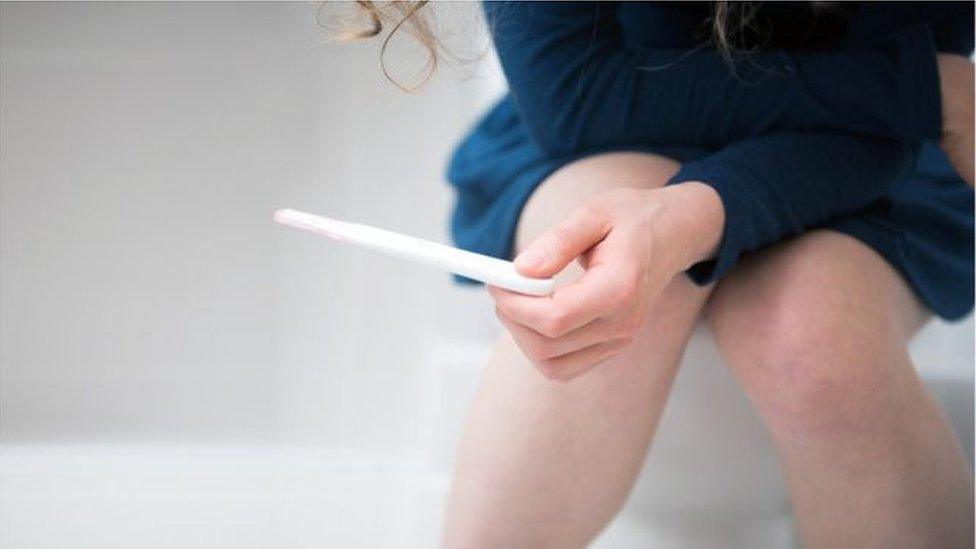
Of those polled:
65% believe that having an abortion should not be a crime
69% of those from a Protestant community background either strongly agreed or agreed
60% of those from a Catholic community background either strongly agreed or agreed
74% of others voted likewise
Supporters of all five main political parties in Northern Ireland were broadly in agreement that abortion should not be criminalised, although Alliance voters held to this view most strongly.
Eighty per cent of those polled think a woman should have the choice of an abortion when her health is at risk.
Seven per cent neither agreed nor disagreed, 13% either disagreed or strongly disagreed. There were no differences in this viewpoint according to religion.
In fact, 63% of both DUP and UUP supporters strongly agreed that where a woman's health was at risk, there should be the choice of an abortion.
SDLP and Sinn Féin voters felt very much the same way but again Alliance supporters were most strongly in favour of this approach.
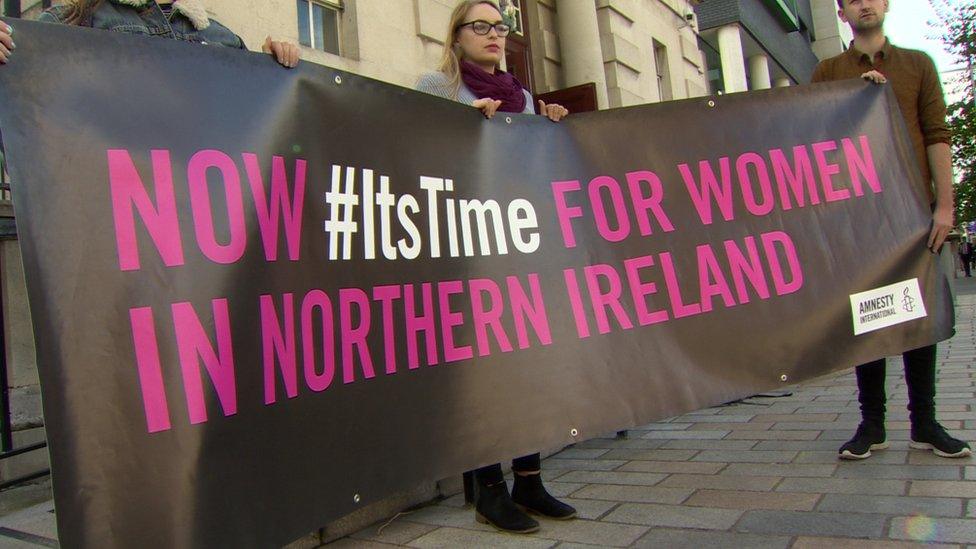
Abortion reform campaigners at the High Court in Belfast
The poll also reflected views on instances where a pregnancy is the result of rape or incest. In these circumstances, eight out of 10 respondents felt that women should have the choice of an abortion.
There was little difference in opinion between men and women, or by age profile or social class.
Where the fetus has an abnormality that is likely to result in death before or shortly after the birth, 73% felt that women should have the choice as to whether they have an abortion.
Again the difference between DUP and Sinn Féin supporters is marginal: 76% of DUP voters either strongly agreed while 70% of Sinn Féin voters felt likewise.
People with a Protestant community background and others were in agreement here, with lower levels of agreement among those from a Catholic background.
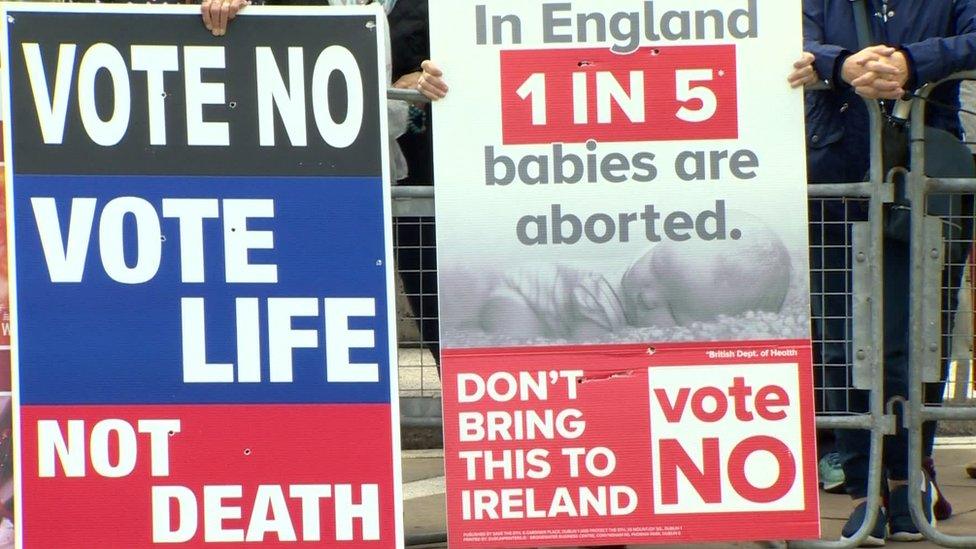
The issue of abortion is highly contentious in Northern Ireland
Both Lives Matter's Marion Woods insisted that women needed improved care options.
"What we're being faced with here is groups like Amnesty International pouring money into polls to ask people questions and not giving them real choice," she said.
"They talk about being pro-choice; pro-choice to them means access to abortion.
"If women here in crisis are being given the path of abortion to travel down, but we're not actually putting in the care services and the structures that need to be there to support women during pregnancy, of course they feel that there is no other way out."
However, Amnesty's Patrick Corrigan said women in Northern Ireland should have the full range of choices.
"That fundamentally is the problem at the moment - they are denied one of the key choices that women in other parts of the UK and shortly in the Republic of Ireland will be able to make," he said.
"That is to be able to terminate the pregnancy where their circumstances allow."
This article was updated on 30 October 2019 to remove references to previous opinion polls in England, Scotland and Wales that had a different methodology and sample size to the polling carried out in Northern Ireland.
- Published13 September 2018
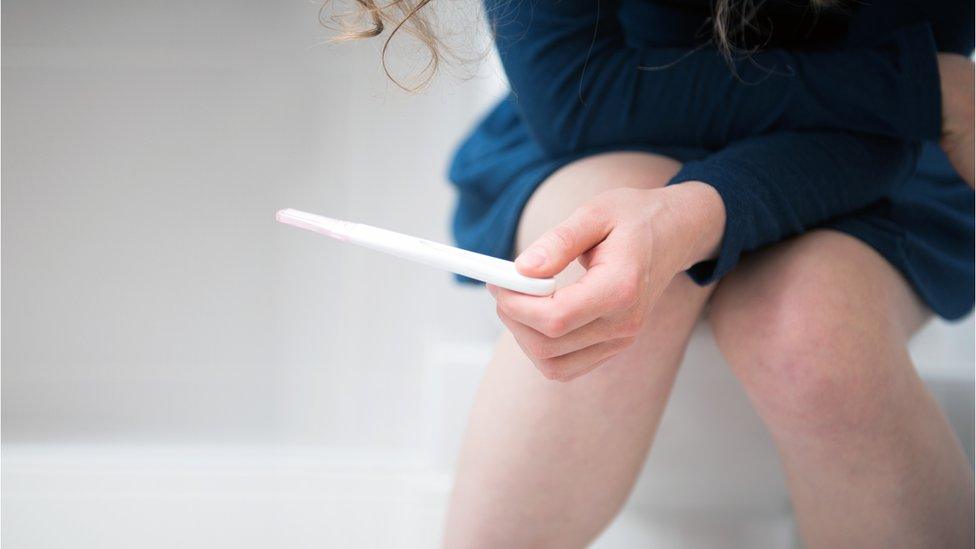
- Published8 June 2018
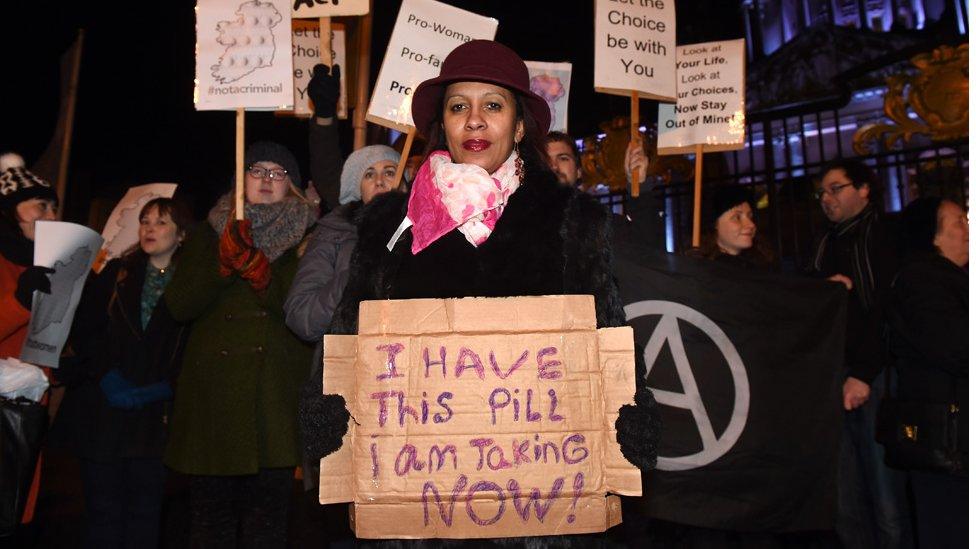
- Published7 June 2018
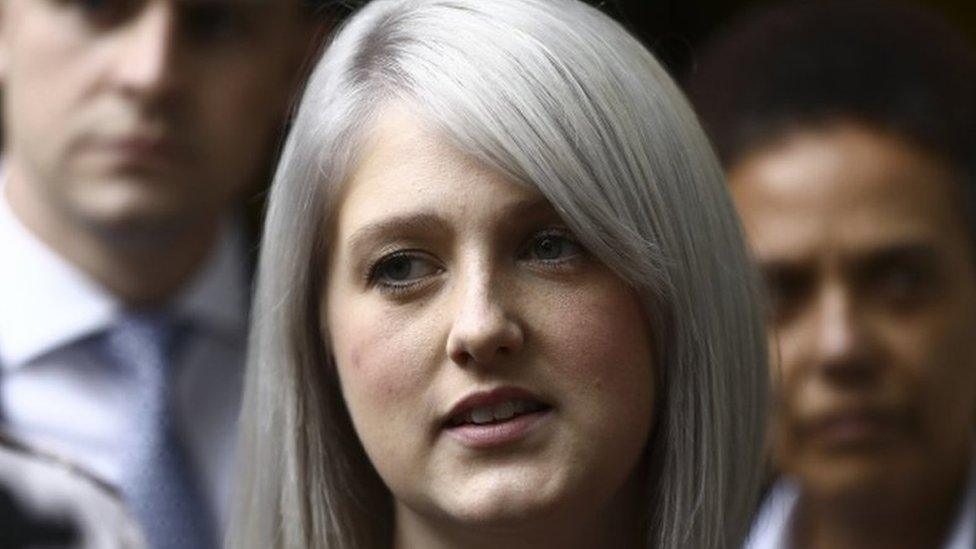
- Published29 May 2018

- Published26 May 2018
